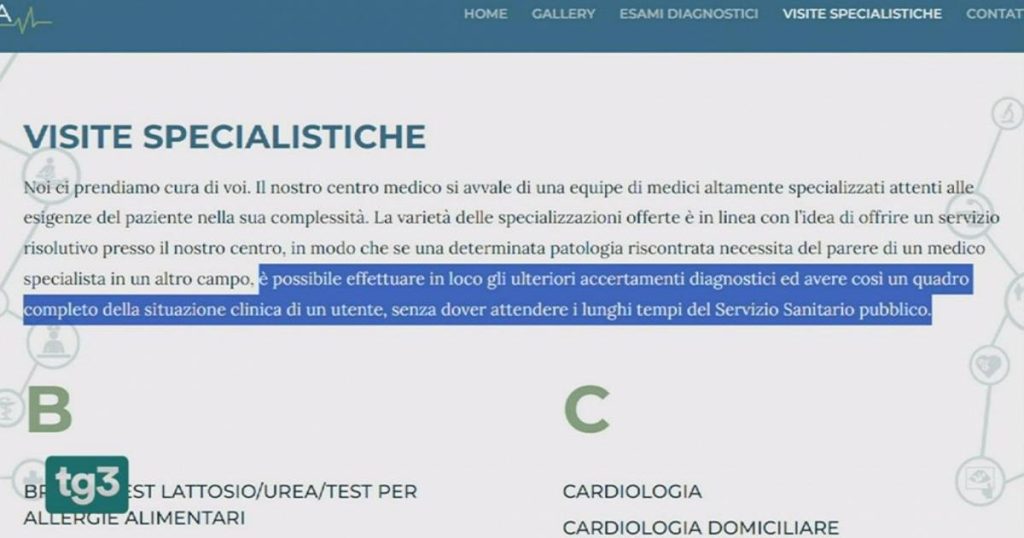A storm erupted over the Undersecretary of Health: the commercial and the private clinic.
The controversy began with an online advertisement from “Therapia Srl,” in which Marcello Gemmato owns 10% of the shares, promising to reduce waitlists for medical services. This advertisement sparked public outrage and led to questions about Gemmato’s involvement with the private clinic. The timing of the advertisement also raised suspicions, as it was released during a time when the public health system was struggling to meet the demands of the COVID-19 pandemic. The connection between the Undersecretary of Health and a private clinic raised concerns about conflicts of interest and potential ethical violations.
Following the public outcry, the Undersecretary of Health faced intense scrutiny and calls for his resignation. Opposition parties and advocacy groups demanded an investigation into Gemmato’s ties to the private clinic and his role in the advertisement. The controversy also raised broader questions about the influence of private interests in the public health sector and the need for greater transparency and accountability in government officials’ dealings.
The scandal surrounding Gemmato’s involvement with the private clinic highlights the challenges and complexities of balancing public service with private interests in the healthcare sector. The situation underscores the importance of maintaining ethical standards and avoiding conflicts of interest when working in government positions, particularly in healthcare, where decisions can have significant impacts on public health and well-being. The incident serves as a reminder of the need for clear guidelines and oversight to prevent such conflicts from arising in the future.
In response to the public outcry, Gemmato issued a statement denying any wrongdoing and asserting that he had followed all ethical guidelines and regulations. He defended his ties to the private clinic as separate from his role as Undersecretary of Health and claimed that the advertisement was not intended to promote his personal interests. However, his explanations failed to quell the controversy, and calls for his resignation continued to grow, with many questioning his credibility and ability to serve effectively in his current position.
As the scandal unfolded, the Undersecretary of Health faced increasing pressure to address the allegations and provide a clear explanation of his actions. The controversy highlighted the need for accountability and transparency in government officials’ conduct and decision-making processes, particularly when public trust and confidence are at stake. The incident also raised broader concerns about the influence of private interests in the public health sector and the potential implications for the delivery of healthcare services to the public. Ultimately, the controversy underscored the importance of maintaining ethical standards and upholding the integrity of government officials to ensure effective governance and public trust in the healthcare system.


